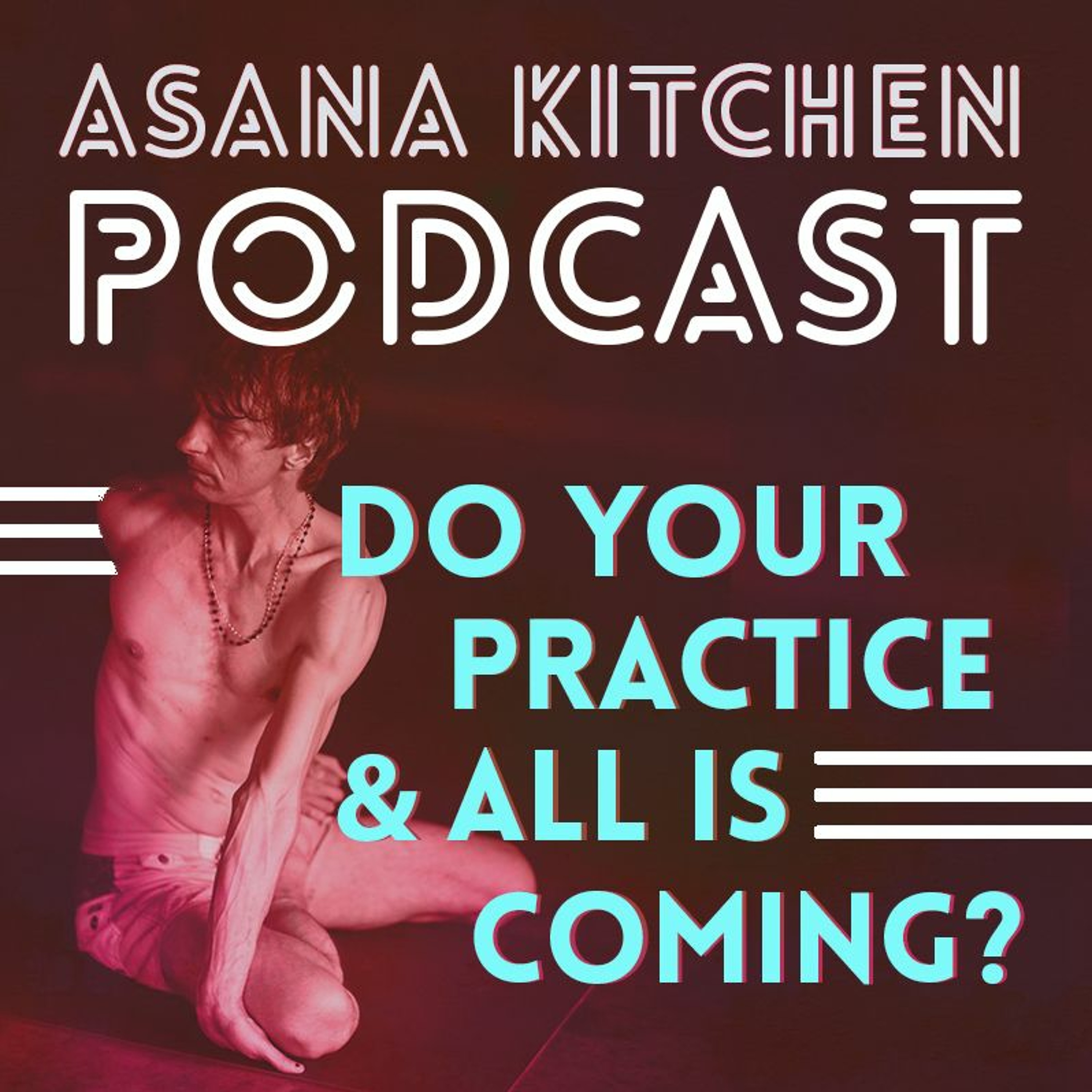Do Your Practice and All Is Coming???
Update: 2021-10-13
Description
In this podcast I discuss the often misinterpreted Ashtanga saying: “Do your practice and all is coming”. I go into detail about the different important meanings of Abhyasa, the Sanskrit word for practice, and probe into how to derive optimal physical and spiritual benefits from your daily efforts.
TOPICS I DISCUSS INCLUDE:
*deliberate practice vs how just practicing a lot is not effective in developing skills or mastery.
*10 years as a possible minimum number of years to become fully established in an effective practice.
*how natural ability (talent or physical ability) doesn’t account for success in practice or in yoga
*the most important skill that can be taught by the teacher is HOW to practice, how to set manageable and appropriate goals, to identify steps in a progression, and to monitor the success or otherwise of the practice strategies.
*How at home practice is most successful if the teacher gives specific instructions about what needs to be worked on, how to do it, and what the results should be like.
*How systematic approaches yield better results than free practice.
*to the question “what to practice?” One answer is to repeat a difficult passage many times until mastery is achieved. This means learning to work on a series in shorter fragments (called fragmenting or chunking) rather than just doing an entire series all the way through with 5 breaths in each pose everyday.
*Concept of metacognition. The quality of practice can be gauged by the level of self regulation and ‘metacognition’. Self awareness includes not only technical knowledge of the poses but also of issues related to the learning itself, such as concentration, planning, monitoring, and evaluation. Self monitoring includes reflecting on what you are doing, how you’re doing it, and having the ingenuity to consider alternative approaches.
*Intensity in practice is related to the student’s personal interest in a particular pose or aspect of practice. Self initiative as a main driver of one’s practice is essential for motivation and enthusiasm. You determine what to focus on based on your interests and tastes; this is at least as important as following a prescribed syllabus or strictly following external rules because ‘that’s the way it's done’.
SPIRITUAL MEANINGS
*Discussion of the following spiritual meanings of the word practice in yoga:
1) Effort of the mind to remain in its unmodified condition of purity, or
2) Inculcation of a truth conveyed in the sacred writings by means of repeating the same word or the same passage.
SACRED TEXTS
*I cite two little exchanges between teacher and student that come from sacred texts (see below) and discuss possible connections between your daily practice and the spiritual teachings found in the texts.
TOPICS I DISCUSS INCLUDE:
*deliberate practice vs how just practicing a lot is not effective in developing skills or mastery.
*10 years as a possible minimum number of years to become fully established in an effective practice.
*how natural ability (talent or physical ability) doesn’t account for success in practice or in yoga
*the most important skill that can be taught by the teacher is HOW to practice, how to set manageable and appropriate goals, to identify steps in a progression, and to monitor the success or otherwise of the practice strategies.
*How at home practice is most successful if the teacher gives specific instructions about what needs to be worked on, how to do it, and what the results should be like.
*How systematic approaches yield better results than free practice.
*to the question “what to practice?” One answer is to repeat a difficult passage many times until mastery is achieved. This means learning to work on a series in shorter fragments (called fragmenting or chunking) rather than just doing an entire series all the way through with 5 breaths in each pose everyday.
*Concept of metacognition. The quality of practice can be gauged by the level of self regulation and ‘metacognition’. Self awareness includes not only technical knowledge of the poses but also of issues related to the learning itself, such as concentration, planning, monitoring, and evaluation. Self monitoring includes reflecting on what you are doing, how you’re doing it, and having the ingenuity to consider alternative approaches.
*Intensity in practice is related to the student’s personal interest in a particular pose or aspect of practice. Self initiative as a main driver of one’s practice is essential for motivation and enthusiasm. You determine what to focus on based on your interests and tastes; this is at least as important as following a prescribed syllabus or strictly following external rules because ‘that’s the way it's done’.
SPIRITUAL MEANINGS
*Discussion of the following spiritual meanings of the word practice in yoga:
1) Effort of the mind to remain in its unmodified condition of purity, or
2) Inculcation of a truth conveyed in the sacred writings by means of repeating the same word or the same passage.
SACRED TEXTS
*I cite two little exchanges between teacher and student that come from sacred texts (see below) and discuss possible connections between your daily practice and the spiritual teachings found in the texts.
Comments
Top Podcasts
The Best New Comedy Podcast Right Now – June 2024The Best News Podcast Right Now – June 2024The Best New Business Podcast Right Now – June 2024The Best New Sports Podcast Right Now – June 2024The Best New True Crime Podcast Right Now – June 2024The Best New Joe Rogan Experience Podcast Right Now – June 20The Best New Dan Bongino Show Podcast Right Now – June 20The Best New Mark Levin Podcast – June 2024
In Channel
























